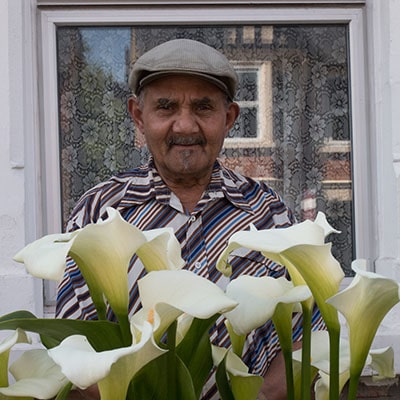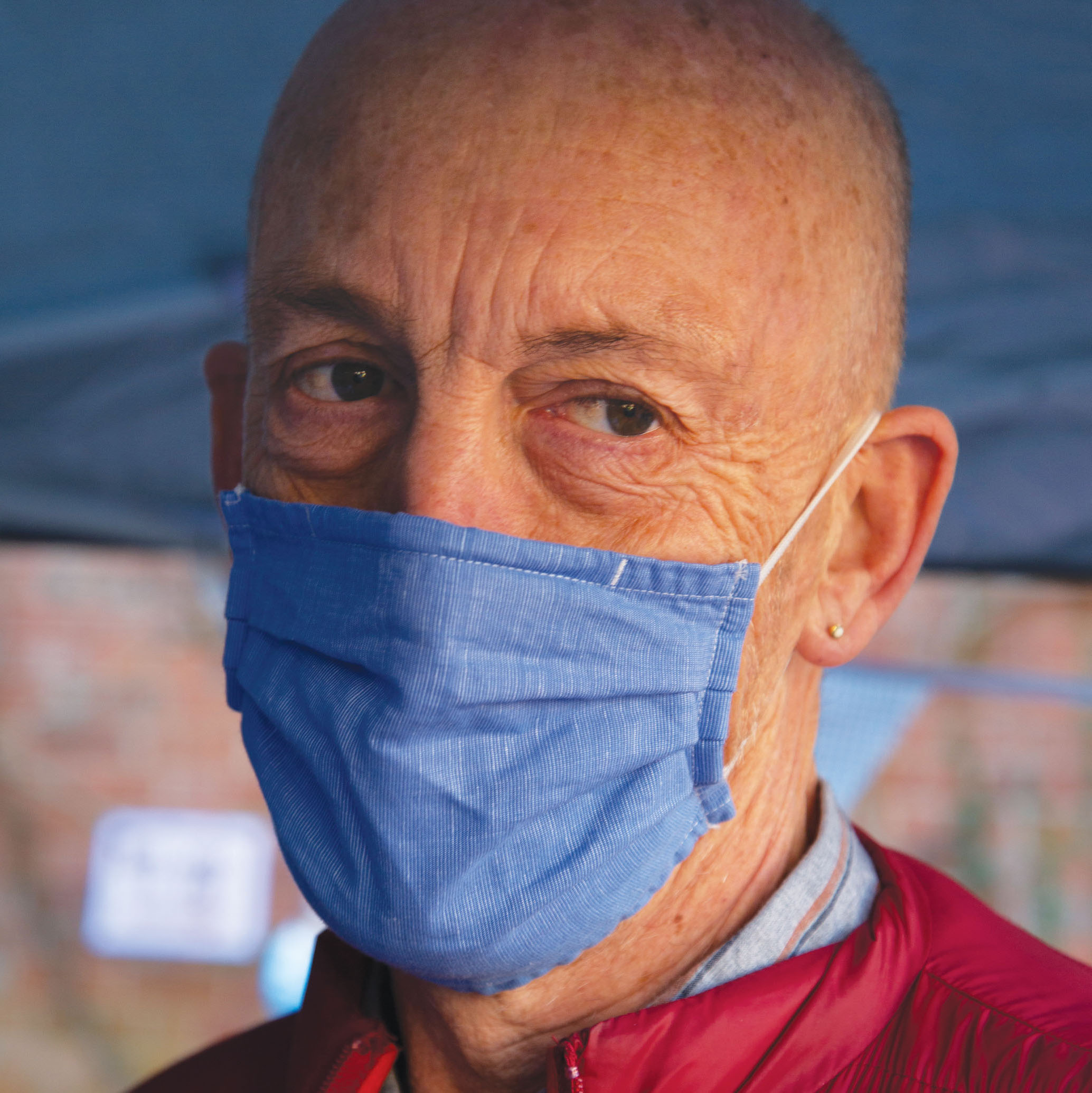Oxford boy: a post-war townie childhood
Will Wyatt who was head of documentaries and managing director of television at the BBC was born and brought up in Oxford during and after World War Two. This is his childhood memoir [Oxford boy: a post war townie childhood. Signal Books 2018]. It is a memoir of what he calls ‘a townie childhood’ and chronicles his transition from Oxford boy to Cambridge man. At the heart of the book, indeed its introductory chapter, and referenced on numerous occasions throughout the book is a decisive moment in his life. He was brought up in an essentially working class household in a rented house on Kingston Road just north of central Oxford and attended his local primary school SS Philip and James (‘Phil & Jim’) on Leckford Road. It was here that the then Headmaster Mr Gray called him back one evening after he had sat his 11+ examination with a request that he return ‘with the same writing implements I had used in the exam’. His life and the book pivot, literally, on the point of a pencil as Mr Gray led him and another child to his study ‘and produced the maths and intelligence papers we had completed that morning. He pointed out some questions we had answered wrongly and all but held our pencils as we corrected them.’ The result was that both pupils passed their 11 + with flying colours and were awarded places at Magdalen College School (MCS). The narrative of this book is about how through this almost miraculous intervention he made the transition from the family of a bricklayer father and mother ‘in service’, to a scholarship at Cambridge and a glittering career in the media.
Oxford Boy is a highly readable account of Wyatt’s family background, upbringing and childhood. His parents were both from large families, his father Basil the youngest of 13 born on Cowley Road, his mother Hettie from rural Leafield where not all was as it seemed. As he discovered when researching family history in his 40’s, ‘Mums favourite sister was her niece, my favourite aunt was my cousin and my favourite cousin was my cousin once removed.’ His maternal grandmother, Grandma Hooper, was by the end of the First World War bringing up three grandchildren as her own. East Oxford was the domain of the Wyatt’s and almost all the boys ended up as builders, mostly for Organ and Co although Basil also worked for Benfield & Loxley and Kingerlee before setting up his own business, Basil Wyatt & Co which flourished for over 60 years before going into administration in February 2019. The chapters on this family history are fascinating for some detail; when they moved to Leopold Street, with eleven children still at home, Basil’s mother Ada instructed them never to go out in groups of more than two or three so that the neighbours woudn’t realise how many of them there were. Cooking was a problem and as she couldn’t cook for the whole family at home on a Sunday at one time ‘the children had to take potatoes up to the bakehouse in Hertford Street and pick them up at one when they were ready.’ That bakery Hudson’s, which opened in 1893 only closed in 2015. But these memories are second or third hand, and lack the immediacy and texture of east Oxford memoirs such as Phyl Surman’s ‘Pride of the Morning’. Wyatt acknowledges that ‘Cowley Road was off my beat’ as a child.
Wyatt is on stronger ground with his own childhood and his memories of playing out on Port Meadow, listening to the ‘wireless’ or going to the ‘pictures’, the arrival of a TV in the house in 1949 (it only ever got one channel the BBC, because that was all there was in those days), trips to the seaside on the south coast, or their one trip to France in 1956 (that was abroad done) visits to relatives out in Leafield, the end of sweet rationing (5 February 1953, a red letter day for any child), or school days at ‘Phil and Jim’. They are full of detail, humour and a sense of the transition that his own family was making as it pulled away from the poachers, gamblers, petty criminals and prostitutes that some of the vast array of parental siblings turned out to be. His parents own transitions from day labourer to building company owner in his father’s case, or his mother’s from being in service with various haughty north Oxford academic families to becoming manageress of a wine shop on Kingston Road where they lived above and below the shop for many years, are object lessons in aspirational working class success. They were unsurprisingly ardent Conservatives, graduating over time from the Daily Express to the Daily Telegraph.
The relationship between such ‘townies’ and the University which so dominated the city (though full acknowledgement of the importance of the Morris Motors car plant is made – it just wasn’t part of their family story) is fascinating because it is told through the eyes of people who apparently had almost no connection to the University. But of course they did, and they were in sometimes surprising ways. Hettie was in service to academic families who with one notable exception were ‘grim’ middle class employers. Basil found the expanding University, both colleges and academic departments a regular and lucrative source of business. Many of their neighbours were college staff, ‘pisspot emptiers’ as Basil derisively referred to them. Many other neighbours found a valuable source of income by providing lodgings to undergraduates and visiting academics. One, whose fair-haired policeman husband was frequently on ‘night duty’ produced a strikingly dark baby. ‘You wouldn’t believe the amount of coffee I drunk during pregnancy’ she explained to sceptical neighbours. Two of Hettie’s sisters provided ‘R&R’ for the undergraduates, much to the distress of their mother – but they both avoided pregnancy and eventually married respectably.
The most interesting aspect of the book though is Wyatt’s personal journey. A naturally bright child whose aspirational parents (especially his mother) pushed him from an early age identifying what she referred to as ‘golden ball’ moments ie opportunities that had to be caught, such as his 11+ success and O level and A level examinations, all of which he thrived at after that initial lucky break at primary school. He is honest about the transition, the shock of the amount of homework expected of boys at MCS and the impact it had on his social life, the pleasures of learning, sport and extra-curricular activities such as drama and the Combined Cadet Force, and gradually, an easy mixing with fellow pupils many of whose own families were high flying academics. There is a level of detail recounted of this period which is likely to be of interest mainly to MCS alumni rather than the general reader. Wyatt though is honest enough to reflect at a number of points on his good fortune and to wonder what happened to the two boys whose places he and his fellow Phil and Jim pupil acquired at their expense. He explains that the system at the time – 1953, was rigidly hierarchical with top pupils going to MCS (direct grant), the next grade to the City of Oxford High School, those following to Southfield School (both grammar schools), the next to the newly created Cheney School (a technical school) and the residuum remaining at a much reduced Phil and Jim secondary modern.
Needless to say children’s life chances were dramatically influenced by which school they ended up at, a fact not lost on his Headmaster Mr Gray, even if its significance went over the heads of the young Wyatt or his parents, at the time. Oxford’s educational system was notorious for its mixture of elitism, class snobbery (Wyatt tells us that even at MCS the houses were divided up into fee-paying pupils and those who arrived on scholorships) and an almost pig-headed refusal to invest in the education of ‘townie’ children by the local authority, whose members were of course dominated by people who educated their own children privately. Wyatt’s memoir revolves around this educational lottery and in doing so shines a light on the wasted talent of so many who did not get his chance. Of course this process reinforces class divisions, leads to wasted lives, especially for women, and of a society robbed of the creativity and talent that could have been unleashed. Its legacy lives on in Oxford which despite its international intellectual reputation still languishes with this inheritance of a divided system, with over a quarter of its children educated privately and a consequently underpowered maintained sector. Will Wyatt’s memoir perhaps inadvertently reminds us both how this came about and through his own success gives us a glimpse of what might have been.
This review appeared in Oxfordshire Local History Vol 10. no 3, Summer 2020.

